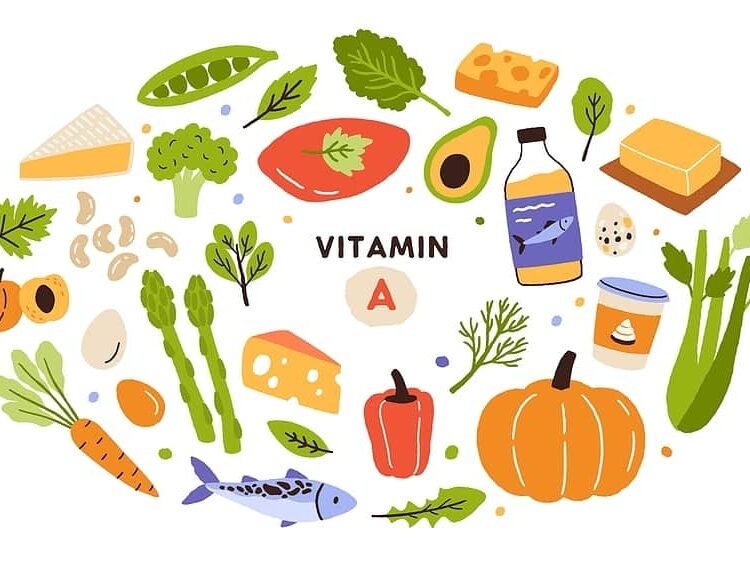As women age, their nutritional needs, metabolism, and overall health requirements change. After 50, hormonal shifts (especially menopause), decreased muscle mass, slower metabolism, and increased risk of chronic diseases make it essential to adopt a balanced diet and healthy lifestyle.
This guide provides a detailed health and diet plan tailored for women over 50, focusing on nutrition, exercise, and wellness strategies to maintain vitality, manage weight, and prevent age-related health issues.
Key Nutritional Needs for Women Over 50
Women over 50 require specific nutrients to support bone health, heart function, metabolism, and hormonal balance. Here are the most important dietary considerations:
1. Calcium & Vitamin D – For Strong Bones
- Why? Postmenopausal women are at higher risk for osteoporosis due to declining estrogen levels.
- Sources:
- Calcium: Dairy (milk, yogurt, cheese), leafy greens (kale, spinach), fortified plant milks, almonds.
- Vitamin D: Fatty fish (salmon, sardines), eggs, fortified foods, sunlight exposure.
- Daily Requirement:
- Calcium: 1,200 mg
- Vitamin D: 600–800 IU (may need supplements if deficient).
2. Protein – Maintains Muscle Mass
- Why? Muscle loss (sarcopenia) accelerates after 50, leading to weakness and slower metabolism.
- Sources: Lean meats, fish, eggs, beans, lentils, tofu, Greek yogurt, quinoa.
- Daily Requirement: 1–1.2 grams per kg of body weight (e.g., 60–70g for a 150-lb woman).
3. Fiber – Supports Digestion & Heart Health
- Why? Helps prevent constipation, regulates blood sugar, and lowers cholesterol.
- Sources: Whole grains (oats, quinoa), fruits (berries, apples), vegetables (broccoli, carrots), legumes, nuts.
- Daily Requirement: 25–30 grams.
4. Omega-3 Fatty Acids – Boosts Brain & Heart Health
- Why? Reduces inflammation, supports cognitive function, and lowers heart disease risk.
- Sources: Fatty fish (salmon, mackerel), flaxseeds, chia seeds, walnuts.
- Daily Requirement: At least 1–2 servings of fatty fish per week.
5. Antioxidants – Fights Aging & Disease
- Why? Protects cells from oxidative stress and reduces chronic disease risk.
- Sources: Berries, dark leafy greens, nuts, dark chocolate, green tea.
6. Hydration – Essential for Metabolism & Skin Health
- Why? Aging reduces thirst signals, increasing dehydration risk.
- Daily Requirement: At least 8–10 glasses of water daily (more if active).
Sample 7-Day Diet Plan for Women Over 50
This balanced meal plan incorporates all essential nutrients while keeping calories in check (around 1,600–1,800 kcal/day, adjustable based on activity level).
Day 1
- Breakfast: Greek yogurt with berries, chia seeds, and almonds.
- Snack: Apple with peanut butter.
- Lunch: Grilled salmon, quinoa, and steamed broccoli.
- Snack: Carrot sticks with hummus.
- Dinner: Chicken stir-fry with mixed veggies and brown rice.
Day 2
- Breakfast: Oatmeal with flaxseeds, banana, and walnuts.
- Snack: Handful of almonds.
- Lunch: Lentil soup with a whole-grain roll and side salad.
- Snack: Cottage cheese with pineapple.
- Dinner: Baked cod with roasted sweet potatoes and asparagus.
Day 3
- Breakfast: Scrambled eggs with spinach and whole-grain toast.
- Snack: Smoothie (kale, banana, almond milk, protein powder).
- Lunch: Turkey & avocado wrap with whole-wheat tortilla.
- Snack: Greek yogurt with honey.
- Dinner: Grilled shrimp with quinoa and roasted Brussels sprouts.
(Continue rotating similar nutrient-dense meals for Days 4–7.)
Lifestyle & Exercise Recommendations
A healthy diet should be paired with regular physical activity and stress management for optimal well-being.
1. Strength Training (2–3x/week)
- Helps maintain muscle mass and bone density.
- Examples: Resistance bands, weightlifting, bodyweight exercises (squats, push-ups).
2. Cardio (150 mins/week)
- Supports heart health and weight management.
- Examples: Brisk walking, swimming, cycling, dancing.
3. Flexibility & Balance (Daily)
- Reduces fall risk and improves mobility.
- Examples: Yoga, Pilates, tai chi.
4. Sleep & Stress Management
- Aim for 7–9 hours of sleep per night.
- Practice relaxation techniques (meditation, deep breathing).
Foods to Limit or Avoid
- Excess sugar & refined carbs (increases diabetes risk).
- Processed meats (linked to heart disease).
- Alcohol (disrupts sleep and bone health).
- High-sodium foods (raises blood pressure).
Final Tips for Long-Term Health
✔ Get regular check-ups (bone density, cholesterol, blood pressure).
✔ Consider supplements (Vitamin D, B12, magnesium if deficient).
✔ Stay socially active – mental health is crucial!
✔ Listen to your body – adjust portions and exercise as needed.
By following this balanced diet and lifestyle plan, women over 50 can maintain energy, strength, and overall wellness for years to come.




